The Grapes of Wrath is a 1940 American drama film directed by John Ford. It was based on John Steinbeck's 1939 Pulitzer Prize-winning novel of the same name. The screenplay was written by Nunnally Johnson and the executive producer was Darryl F. Zanuck.
| The Grapes of Wrath | |
|---|---|
Theatrical release poster | |
| Directed by | John Ford |
| Produced by |
|
| Screenplay by | Nunnally Johnson |
| Based on | The Grapes of Wrath by John Steinbeck |
| Starring |
|
| Music by | Alfred Newman |
| Cinematography | Gregg Toland |
| Edited by | Robert L. Simpson |
| Distributed by | 20th Century Fox |
Release date |
|
Running time | 129 minutes |
| Country | United States |
| Language | English |
| Budget | $800,000 |
| Box office | $2.5 million (rentals) |
The film tells the story of the Joads, an Oklahoma family, who, after losing their farm during the Great Depression in the 1930s, become migrant workers and end up in California. The motion picture details their arduous journey across the United States as they travel to California in search of work and opportunities for the family members.
The film is widely considered as one of the greatest American films of all time. In 1989, this film was one of the first 25 films to be selected for preservation in the United States National Film Registry by the Library of Congress as being "culturally, historically, or aesthetically significant."
Screenplay
The film opens with Tom Joad (Henry Fonda), released from prison and hitchhiking his way back to his parents' family farm in Oklahoma. Tom finds an itinerant ex-preacher named Jim Casy (John Carradine) sitting under a tree by the side of the road. Casy was the preacher who baptized Tom, but now Casy has "lost the spirit" and his faith. Casy goes with Tom to the Joad property only to find it deserted. There, they meet Muley Graves (John Qualen) who is hiding out. In a flashback, he describes how farmers all over the area were forced from their farms by the deed holders of the land. A local boy (John Arledge), hired for the purpose, is shown knocking down Muley's house with a Caterpillar tractor. The large Joad family of twelve leaves at daybreak, along with Casy, who decides to accompany them. They pack everything into a dilapidated 1926 Hudson "Super Six" sedan adapted to serve as a truck in order to make the long journey to the promised land of California.
The trip along Highway 66 is arduous, and it soon takes a toll on the Joad family. The elderly Grandpa (Charley Grapewin) dies along the way. Tom writes the circumstances surrounding the death on a page from the family Bible and places it on the body before they bury it so that if his remains were found, his death would not be investigated as a possible homicide. They park in a camp and meet a man, a migrant returning from California, who laughs at Pa's optimism about conditions in California. He speaks bitterly about his experiences in the West. Grandma (Zeffie Tilbury) dies when the reach California, the son Noah (Frank Sully) and son-in-law Connie (Eddie Quillan) also leave the family group.
The family arrives at the first transient migrant campground for workers and finds the camp is crowded with other starving, jobless and desperate travelers. Their truck slowly makes its way through the dirt road between the shanty houses and around the camp's hungry-faced inhabitants. Tom says, "Sure don't look none too prosperous."
After some trouble with a so-called "agitator", the Joads leave the camp in a hurry. The Joads make their way to another migrant camp, the Keene Ranch. After doing some work in the fields, they discover the high food prices in the company store for meat and other products. The store is the only one in the area, by a long shot. Later they find a group of migrant workers are striking, and Tom wants to find out all about it. He goes to a secret meeting in the dark woods. When the meeting is discovered, Casy is killed by one of the camp guards. As Tom tries to defend Casy from the attack, he inadvertently kills the guard.
Tom suffers a serious wound on his cheek, and the camp guards realize it will not be difficult to identify him. That evening the family hides Tom under the mattresses of the truck just as guards arrive to question them; they are searching for the man who killed the guard. Tom avoids being spotted and the family leaves the Keene Ranch without further incident. After driving for a while, they have to stop at the top of a hill when the engine overheats due to a broken fan belt; they have little gas, but decide to try coasting down the hill to some lights. The lights are from a third type of camp: Farmworkers' Wheat Patch Camp (Weedpatch in the book), a clean camp run by the Department of Agriculture, complete with indoor toilets and showers, which the Joad children had never seen before.
Tom is moved to work for change by what he has witnessed in the various camps. He tells his family that he plans to carry on Casy's mission in the world by fighting for social reform. He leaves to seek a new world and to join the movement committed to social justice.
Tom Joad says:
I'll be all around in the dark. I'll be everywhere. Wherever you can look, wherever there's a fight, so hungry people can eat, I'll be there. Wherever there's a cop beatin' up a guy, I'll be there. I'll be in the way guys yell when they're mad. I'll be in the way kids laugh when they're hungry and they know supper's ready, and when the people are eatin' the stuff they raise and livin' in the houses they build, I'll be there, too.
As the family moves on again, they discuss the fear and difficulties they have had. Ma Joad concludes the film, saying:
I ain't never gonna be scared no more. I was, though. For a while it looked as though we was beat. Good and beat. Looked like we didn't have nobody in the whole wide world but enemies. Like nobody was friendly no more. Made me feel kinda bad and scared too, like we was lost and nobody cared.... Rich fellas come up and they die, and their kids ain't no good and they die out, but we keep a-coming. We're the people that live. They can't wipe us out, they can't lick us. We'll go on forever, Pa, cos we're the people.
- Henry Fonda as Tom Joad
- Jane Darwell as Ma Joad
- John Carradine as Jim Casy
- Charley Grapewin as William James "Grandpa" Joad
- Dorris Bowdon as Rosasharn
- Russell Simpson as Pa Joad
- O. Z. Whitehead as Al Joad
- John Qualen as Muley Graves
- Eddie Quillan as Connie Rivers
- Zeffie Tilbury as Grandma Joad
- Frank Sully as Noah Joad
- Frank Darien as Uncle John
- Darryl Hickman as Winfield Joad
- Shirley Mills as Ruth "Ruthie" Joad
- Roger Imhof as Thomas
- Grant Mitchell as Caretaker
- Charles D. Brown as Wilkie
- John Arledge as Davis
- Ward Bond as Policeman
- Harry Tyler as Bert
- William Pawley as Bill
- Charles Tannen as Joe
- Selmer Jackson as Inspection Officer
- Charles Middleton as Leader
- Eddie Waller as Proprietor
- Paul Guilfoyle as Floyd
- David Hughes as Frank
- Cliff Clark as City Man
- Joseph Sawyer as Bookkeeper
- Frank Faylen as Tim
- Adrian Morris as Agent
- Hollis Jewell as Muley's Son
- Robert Homans as Spencer
- Irving Bacon as Driver
- Kitty McHugh as Mae
- Tom Tyler as Deputy (uncredited)
- Joe Bordeaux as Migrant (uncredited)
According to The New York Times, The Grapes of Wrath was America's best-selling book of 1939 and 430,000 copies had been printed by February 1940. In that month it won the National Book Award, favorite fiction book of 1939, voted by members of the American Booksellers Association. Soon it won the Pulitzer Prize for Fiction.
In 1962, the Nobel Prize committee said The Grapes of Wrath was "great work" and one of the committee's main reasons for granting Steinbeck the Nobel Prize for Literature. Time magazine included the novel in its "TIME 100 Best English-language Novels from 1923 to 2005". In 2009, The Daily Telegraph also included the novel in its "100 novels everyone should read". In 1998, the Modern Library ranked The Grapes of Wrath tenth on its list of the 100 best English-language novels of the 20th century.
The first part of the film follows the book fairly closely. However, the second half and the ending in particular are significantly different from the book. While the book ends with the downfall and break-up of the Joad family, the film switches the order of sequences so that the family ends up in a "good" camp provided by the government, and events turn out relatively well.
The novel's original ending was considered far too controversial to be included in the film. In the novel, Rose-of-Sharon ("Rosasharn") Rivers (played in the film by Dorris Bowdon) gives birth to a stillborn baby. Later she offers her milk-filled breasts to a starving man, dying in a barn. These scenes were not included in the film.
While the film is somewhat stark, it has a more optimistic and hopeful view than the novel, especially when the Joads land at the Department of Agriculture camp – the clean camp. Also, the producers decided to tone down Steinbeck's political references, such as eliminating a monologue using a land owner's description of "reds" as anybody "that wants thirty cents an hour when we're payin' twenty-five," to show that under the prevalent conditions that definition applies to every migrant worker looking for better wages.
The film emphasizes Ma Joad's pragmatic, forward-looking way of dealing with their situation despite Tom's departure, as it concludes with her spiritual "We're the people" speech.
Ivy and Sairy Wilson, who attend to Grandpa's death and travel with the Joads until they reach California, are left out of the movie. Noah's departure from the family is passed over in the movie. Instead, he simply disappears without explanation. In the book, Floyd tells Tom about how the workers were being exploited, but in the movie he does not appear until after the deputy arrives in Hooverville. Sandry, the religious fanatic who scares Rose of Sharon, is left out of the movie.
Vivian Sobchack argued that the film uses visual imagery to focus on the Joads as a family unit, whereas the novel focuses on their journey as a part of the "family of man". She points out that their farm is never shown in detail, and that the family members are never shown working in agriculture; not a single peach is shown in the entire film. This subtly serves to focus the film on the specific family, as opposed to the novel's focus on man and land together.
In the film, most family members are either reduced, such as Al, Noah and Uncle John, to background characters or, like Rose of Sharon and Connie, to being the focus of only one or two relatively minor scenes. Instead, the film is largely concerned with Tom, Ma and, to a lesser extent, Jim Casy. Thus, despite the film's focus on the Joads as a specific family rather than a part of the "family of man", the movie explores very little of the members of the family itself.
- Henry Fonda – "Red River Valley"
- Eddie Quillan – "Going Down the Road Feeling Bad" (Traditional)
- "A Tisket, A Tasket" (Words & music by Ella Fitzgerald & Van Alexander)
According to critic Roger Ebert, both executive producer Darryl F. Zanuck and director John Ford were odd choices to make this film because both were considered politically conservative. Zanuck was nervous about the left-wing political views of the novel, especially the ending. Due to the red-baiting common to the era, Darryl Zanuck sent private investigators to Oklahoma to help him legitimize the film.
When Zanuck's investigators found that the "Okies'" predicament was indeed terrible, Zanuck was confident he could defend political attacks that the film was somehow pro-Communist. Ebert believes that World War II also helped sell the film's message, as Communism received a brief respite from American demonizing during that period.
Production on the film began on October 4, 1939, and was completed on November 16, 1939. Some of the filming locations include
Watch movie The Grapes Of Wrath Film online on Amazon
Watch movie The Grapes Of Wrath Film online
Watch The Movie On PrimeVachanam Full HD Movie Download

Aayee Milan Ki Raat Full HD Movie Download
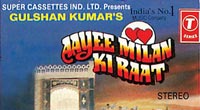
Kabzaa-The Mafia Raaj Full HD Movie Download

Tahaan Full HD Movie Download

Siva Full HD Movie Download

Mujrim Full HD Movie Download

Shriman Satyawadi Full HD Movie Download
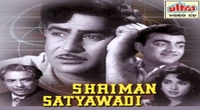
Bikhare Moti (1971) Full HD Movie Download
.jpg)
Alibaba Aur 40 Chor Full HD Movie Download

Bhavnao Ko Samjho Full HD Movie Download

Adirindi Gurui Full HD Movie Download

Bharya Bharthala Bhagotham Full HD Movie Download
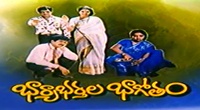
Anjali Full HD Movie Download
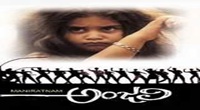
Success Full HD Movie Download

Nagastram Full HD Movie Download

Ottesi Cheputunna Full HD Movie Download

Palleturi Pidugu Full HD Movie Download

Gudhachari No.1 Full HD Movie Download

Indhu Full HD Movie Download

Anyay Abichar Full HD Movie Download
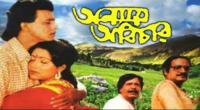
Mere Brother Ki Dulhan Full HD Movie Download

Download latest Movie from bollywood
- 1> baaghi 3
- 2> THE SKY IS PINK MOVIE FULL STORY AND REVIEW
- 3> Luka Chuppi
- 4> TO ALL THE BOYS I’VE LOVED BEFORE
- 5> Kabir Singh
- 6> Street Dancer 3D
- 7> Simmba
- 8> Gone Girl
- 9> The Girl Who Lived
- 10> Ludo
- 11> DILWALE DULHANIA LE JAYENGE
- 12> GUILTY
- 13> The Godfather
- 14> Adventures of Rusty
- 15> Sooryavanshi
- 16> Satyameva Jayate 2
- 17> Thappad
- 18> Bhool Bhulaiyaa 2
- 19> KGFChapter 2
- 20> Mardaani 2
- 21> Pinjar
- 22> Shivaji maharaj
- 23> Ek Villian 2
- 24> Hungama 2
- 25> Divergent
- 26> Mumbai Saga
- 27> The Internship
- 28> HIT (telugu)
- 29> Panga
- 30> The perfect date
- 31> 16 December
- 32> Gopala Gopala (Telugu)
- 33> Brahmastra
- 34> Gangubai Kathiawadi
- 35> Manmadhudu
- 36> Nenu local
- 37> Mahanati
- 38> Shatamanam bavathi
- 39> Lagaan
- 40> After
- 41> MOM
- 42> Shamshera
- 43> Raguvaran BTech
- 44> Khakee
- 45> The villain
- 46> OM
- 47> Mr. perfect
- 48> Bueatifull mind
- 49> Hichki
- 50> Gabbar Singh
- 51> Jogi
- 52> Before Sunrise
- 53> Before Sunset
- 54> Before Midnight
- 55> The Big Bull
- 56> Top Gun: Maverick
- 57> The Purge
- 58> The Sky is Pink
- 59> Laxmmi Bomb
- 60> Sadak 2
- 61> Sufna
- 62> Prithviraj
- 63> PK
- 64> Coolie No 1(2020)
- 65> Black Widow
- 66> Dear Zindagi
- 67> Dil Bechara
- 68> PHIR HERA PHERI
- 69> WAR
- 70> Dostana
- 71> RRR: Roudram Ranam Rudhiram
- 72> Maidan
- 73> Dabbang 3
- 74> Chhalaang
- 75> life as we know it
- 76> SherShaah
- 77> Sandeep Aur Pinky Faraar
- 78> Event Horizon
- 79> 83
- 80> Radhe: Your Most Wanted Bhai
- 81> Gunjan Saxena: The Kargil Girl
- 82> Mr India
- 83> Vivah
- 84> Anokha Bandhan
- 85> Ghost
- 86> Bhoot: Part One - The Haunted Ship
- 87> Haseen Dilruba
- 88> Laal Singh Chaddha
- 89> Qismat
- 90> Rajput
- 91> Drive
- 92> Dil Chahta Hai
- 93> Dil Ki Baazi
- 94> Dil Ka Rishta
- 95> Teesri Manzil
- 96> Dil
- 97> Love Aaj Kal
- 98> Khaali Peeli
- 99> Bunty Aur Babli 2
- 100> Atrangi Re
- 101> Gulabo Sitabo
- 102> Jodi
- 103> Suraj Pe Mangal Bhari
- 104> Deewana
- 105> Attack
- 106> Sardar Udham Singh
- 107> Toofan
- 108> THE LOVEBIRDS
- 109> Jersey
- 110> Ginny Weds Sunny
- 111> Thalaivi
- 112> Shiddat
- 113> Angels vs Zombies
- 114> Koi Mil Gya
- 115> Thank God
- 116> Bhuj: The Pride of India
- 117> Hum Aapke Hain Kaun
- 118> The Platform
- 119> Bird Box
- 120> Roohi Afzana
- 121> Torbaaz
- 122> Nikamma
- 123> World War Z
- 124> Extraction
- 125> Train to Busan
- 126> Life of Pi
- 127> SHAADI MEIN JROOR AANA
- 128> Himmat Aur Mehnat
- 129> To All The Boys: P.S. I Still Love You
- 130> Mimi
- 131> Good Newwz
- 132> Shubh Mangal Zyada Saavdhan
- 133> Raabta
- 134> Harry Potter and the Philosopher's Stone
- 135> Harry Potter and the Chamber of Secrets
- 136> Chhapaak
- 137> War of the Worlds
- 138> Harry Potter and the Prisoner of Azkaban
- 139> Harry Potter and the Goblet of Fire
- 140> MURDER MYSTERY
- 141> Shakuntala Devi
- 142> Bachchan Pandey
- 143> Jayeshbhai Jordar
- 144> Sheer Qorma
- 145> Saina
- 146> 'O' Pushpa I hate tears
- 147> Kedarnath
- 148> MS Dhoni The Untold Story
- 149> Chhichhore
- 150> Badhaai Ho
- 151> Unstoppable
- 152> Oz the Great And Powerful
- 153> The Girl on the Train
- 154> Haathi Mere Saathi 2020
- 155> The Conjuring: The Devil Made Me Do It
- 156> Gandhi Se Pehle Gandhi
- 157> The Song of Scorpions
- 158> Srimanthudu
- 159> Hello Guru Prema Kosame
- 160> Beauty and The Beast
- 161> Black Panther
- 162> Charlie and the Chocolate Factory
- 163> Bole Chudiyan
- 164> Fidaa
- 165> Duvvada Jagannadham
- 166> Bruce Lee: The Fighter
- 167> Hyper
- 168> Yaara
- 169> Red (2020)
- 170> Shivam
- 171> That Is Mahalakshmi
- 172> Nishabdham
- 173> Aashram 2020 web series
- 174> Laxmii
- 175> Mismatched
- 176> STUDENT OF THE YEAR 2
- 177> NAIL POLISH
- 178> Ramprasad Ki Tehrvi
- 179> KAAGAZ
- 180> 12 o Clock
- 181> The Power
- 182> bolo hau
- 183> Tribhanga
- 184> JAMUN
- 185> Madam Chief Minister
- 186> Maasaab
- 187> Aadhaar
- 188> Tanhaji
- 189> Bhaagi 3
- 190> Bhootnath
- 191> MALANG
- 192> Jai Mummy Di
- 193> Haathi Mere Saathi 2021
- 194> Shakeela
- 195> Unpaused
- 196> Annayya
- 197> Vamsoddharakudu
- 198> Mrugaraju
- 199> Narasimha Naidu
- 200> Sankranti
- 201> Manasu Maata Vinadhu
- 202> Anjaane
- 203> Apaharan
- 204> Bachke Rehna Re Baba
- 205> Bewafaa
- 206> Roohi
- 207> Radhe
- 208> Zindagi Khoobsoorat Hai
- 209> Yeh Mohabbat Hai
- 210> Yeh Kya Ho Raha Hai?
- 211> The Tomorrow War
- 212> DehradunDiary
- 213> Meri Shaadi Karaoo
- 214> Matruu Ki Bijlee Ka Mandola
- 215> No One Killed Jesica
- 216> Aag Ka Goola
- 217> Eight Million Dollars
- 218> Three Hundred
- 219> Cats and Dog
- 220> Decoy
- 221> Gold Rush
- 222> You Have Got Mail
- 223> Final Destination three
- 224> Tofan
- 225> Jungle
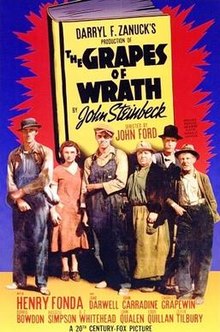 Story of movie The Grapes Of Wrath Film :
Story of movie The Grapes Of Wrath Film : 